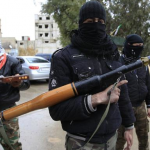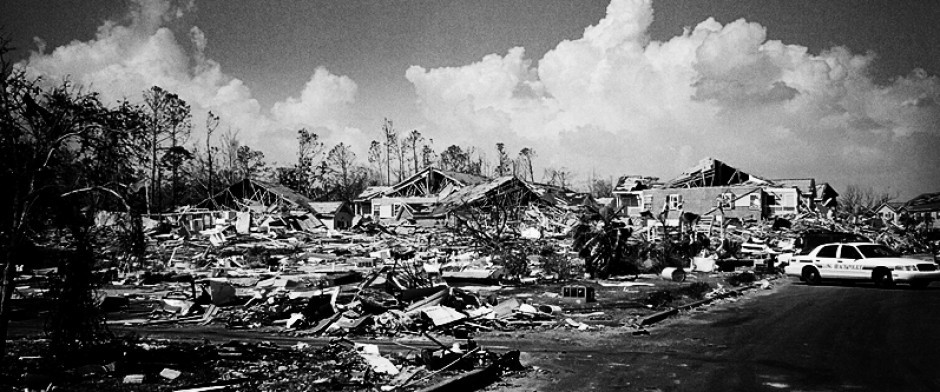
Al Qaeda(AQ) is more powerful today than it was over a decade ago when then President George W. Bush declared his nebulous, ill-fated war on terrorism. Ironically, one could strongly argue it was the war against AQ that made AQ more popular and resilient than it could have ever hoped to be autonomously operating in the shadows. Nothing is more demonstrative of this than the situation today in Iraq. AQ has become a conventional military force and effectively dissolved the border between Iraq and Syria merging it into the Islamic State of the Levant almost completely absent of media attention in the west. In fact, in its first major test as a state like entity, the Iraqi Army conducted a full scale assault on the AQ held portions of Ramadi and Fallujah only to suffer a decisive defeat leaving AQ firmly in control of the traditional Sunni areas of Iraq. The ramifications of this transformation of AQ from a stateless terrorist organization to a conventional army with a defined geographical territory right in the heart of the Middle East are extremely dire even if the Western Media has all but ignored the disaster borne of Bush and Obama’s failed foreign policies.
President Obama has cited again and again how AQ has been defeated and dismantled, yet AQ has repeatedly proven the president either ignorant or a liar as we predicted. As a result of the US conducting its insane policy of intervening in the Syrian Civil War (not to mention creating the war) and then providing military grade weapons to AQ aligned rebels in Syria, AQ fighters now have a conventional military capability compliments of the US taxpayer whether directly supplied by the CIA or indirectly via Saudi Arabia and Qatar. In fact, the heavily armed AQ rebels have crossed into Iraq for sanctuary and taken over large stretches of the western portions of Iraq. As I warned, the insurgencies in Syria and Iraq could merge and create massive unrest in the Middle East. This perfect storm has emerged. With the firepower supplied by not just the US, but Saudi Arabia, Qatar, and Turkey, the AQ elements are not stopping in western Iraq and instead have pushed on toward Baghdad. The Shia controlled Iraqi government has so far been unable to retake the areas already captured by AQ and has now been defeated in direct conventional combat operations in both Fallujah and Ramadi. If the Iraqi military is unable to check the advance and growth of the AQ Army, it is indeed possible that portions of Baghdad will be captured by AQ. This in effect will mean that Iraq has effectively splintered into three autonomous nations, one Sunni, one Kurd, and one Shia as I have predicted for years. It will also herald the emergence of the AQ organization, the Islamic State of Iraq and the Levant, into the actual Islamic State of the Levant.
Even if Baghdad is not taken by AQ the situation is already quite dire. An all-out sectarian proxy war has begun between Iran and Saudi Arabia. The battlefield to date has been confined to the Middle East, but it soon will spill over onto other continents with Africa already suffering the worst from growing Islamic extremism. Each side has gained victories and neither is done fighting. Iran has so far managed to maintain its ally Syria against the concerted efforts of the US, Saudi Arabia, Qatar, Jordan, and even Turkey. Iran maintains strong influence over the Iraqi government, which remains predominantly Shia. Iran has also diplomatically outmaneuvered the US, which based on the accomplishments of Secretaries Clinton and Kerry should not come as any surprise, and forced a deal over its nuclear program to include reducing sanctions. However, Hezbollah leaders have been assassinated in Lebanon and AQ backed Sunnis have taken over western Iraq.
This sets the stage in Iraq for a winner takes all fight that will become very bloody. Iran has strategic interests in maintaining its newly minted proxy government in Iraq, compliments of the shortsighted US policy that toppled the Sunni-Baathist regime of Saddam Hussein. In particular, the Iraqi government allows Iran to move weapons and troops through its territory to support President Assad’s forces in Syria and is colluding with Iran on oil production to undercut Saudi oil revenues. However, Iraq’s government is vulnerable so Iran will support the Iraqi military with Iranian units against AQ. Iran is well aware that by defeating these AQ elements in Iraq, it will severely weaken the rebel forces fighting its traditional ally Syria. Saudi Arabia knows that an Iranian win in Syria or Iraq will most likely mean a strategic win across the board for Iran. Saudi Arabia will view a nuclear Iran with control of both Iraq and Syria as an existential strategic threat that it won’t be able to ignore. As such, Saudi Arabia has to escalate the proxy war it in part created by doubling down and backing the AQ aligned Sunnis in an attempt to weaken Iran. This will lead to greater, prolonged bloodshed throughout the Middle East, a disintegration of borders, and further destabilization of Iraq, Saudi Arabia, Jordan, and Yemen.
Dangerously, almost any conceivable conclusion to the Iran-Saudi proxy war now seems to point to greater war in the Middle East that will be difficult to deescalate. A stalemate or major breakthrough in favor of Iran may force the countries into direct conflict. Saudi Arabia may also lobby for and overtly support a devastating Israeli strike against Iran, which will have global repercussions. It will also signal Saudi Arabia to move forward with purchasing its own nuclear weapons from Pakistan setting off the dreaded cycle of proliferation across the region. However, if Iran is defeated, the results could be far worse. An Iranian defeat means an AQ victory. In the event of victory, AQ will solidify what amounts to the Islamic State of the Levant. This newly emerged state will turn on the corrupt regimes that spawned it and attack Jordan, Yemen, and Saudi Arabia potentially toppling those regimes. Further, AQ would solidify their control of the region and make it effectively off limits for any US interests short of another war. The new Islamic State of the Levant would be a breeding ground for attacks against the US and a safe haven for terrorists that have emerged into a legitimate army. Saudi Arabia, in particular, will be very vulnerable to the AQ fighters and could be destabilized to the point oil production is severely disrupted. Israel will come under even greater pressure as the Palestinians receive increased support from AQ leadership. These are just a few of the first order regional effects without even touching the greater global implications and how it would affect major powers like the US, Russia, and China.
The US will regret that it armed, trained, and equipped AQ elements in Syria for short sighted policies designed to undermine Iran. The ramifications of the chain reaction Washington’s policy set in motion will be dire and far reaching. Already, the world must begin to recognize it created a defacto AQ state in the Levant even if the western media has not grasped this new reality. Nonetheless, one cannot predict with certainty how this will end, but one can be certain that much greater blood will be shed before this new regional war concludes.
By Guiles Hendrik
January 31, 2014
All rights reserved.



